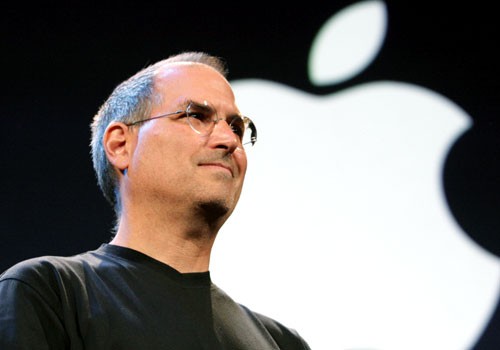Most of us know Steve Martin as comic, actor, and occasional author and director. His role as banjo player, however, has been one of the most informative of his career.
In his 2007 interview with Charlie Rose, Steve recounted his experience learning to play the instrument.
“I remember getting my first banjo, and reading the book saying ‘this is how you play the C chord,’ and I put my fingers down to play the C chord and I couldn’t tell the difference.”
play the C chord,’ and I put my fingers down to play the C chord and I couldn’t tell the difference.”
“But I told myself,” he continued, “just stick with this, just keep playing, and one day you’ll have been playing for 40 years, and at this point, you’ll know how to play.”
In 1960s California, the banjo was an interesting choice of instrument–there weren’t a lot of lessons being offered if any. Instead, Steve would take Earl Scruggs records and slow them down from 33 RPM to 16 RPM and then tune down the banjo to match the slower speed. He’d then tediously pick out the notes, one by one.
Later, when Steve began his stand up comedy career, he decided to make the banjo part of his routine.
“The reason I played [banjo] on stage,” he explained in an ABC interview, “is because…I thought it’s probably good to show the audience I can do something that looks hard, because this act looks like I’m just making it up.”
50 years after Steve began his attempt at playing banjo, he released his first album, “The Crow” in 2009 and it won a Grammy. He’s since been nominated for another. It’s not far off from the 40 years he’d told himself as a teenager it would take to learn how to play.
and it won a Grammy. He’s since been nominated for another. It’s not far off from the 40 years he’d told himself as a teenager it would take to learn how to play.
Steve’s memoir, Born Standing Up, defines diligence not just in terms of persistence, but also the integration of seemingly unrelated pursuits.
Steve was of course exagerrating when he projected it would take 40 years to get good at the banjo, and was obviously playing at a high-level after 5 – 10 years of taking up the instrument when he began using it in his act. But his resolution reflects a deeper truth: getting good at something is not to be taken lightly, and skill is to be developed over the course of a life.




 e probably putting in more effort than you’re charging for and you might even volunteer to do it.
e probably putting in more effort than you’re charging for and you might even volunteer to do it.